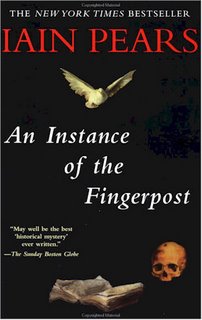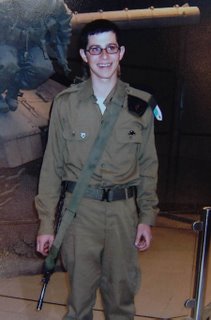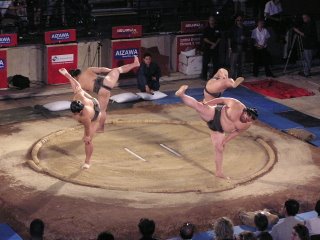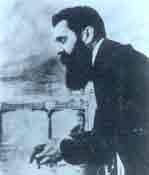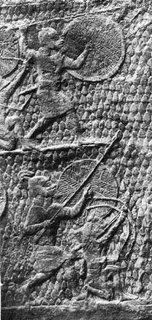Those studying the
Daf Yomi have this week come across (one version) of the story about Pinchas Ben Yair's donkey, a story brought by the Talmud to support the saying: "If the
rishonim (the sages of early ages) were like men, then we are like donkeys". This saying is oft quoted to illustrate the concept of the "decline of the generations" (
yeridat ha-dorot), the decline of Torah scholarship across generations.
First the story about the donkey, then some short thoughts about the notion of the "decline of the generations".
The
Yerushalmi in
Shekalim 13, tells us about the donkey of Pinchas Ben Yair, one of the early
chassidim (not the
chassidim of today, but a group of righteous people who were known for their good deeds and close relationship to God). This donkey was stolen and for three days, while in captivity, refused to eat anything. Not wanting a dead donkey on their hands, the thieves released it. The donkey found its way back and stood outside Pinchas Ben Yair's home, braying for attention. Hearing her (for the donkey was a "she", a jennet) Pinchas Ben Yair ordered for food to be brought, but when barley was put before the donkey, again it refused to eat. When told about this, Ben Yair inquired whether tithe was given from this barley, and the answer was positive. He then asked whether tithe was given from the
demai (a more strict tithe, we won't go into the details) and the answer was that this was not necessary as the law does not require tithe from
demai when the produce is used to feed animals. Pinchas Ben Yair smiled and said: "what can I do if my donkey is so righteous that it won't eat
demai without tithing!". He tithed the barley and the donkey finally started eating.
The Talmud tells us the bottom line: yes, it is true we are "like donkeys", but we are not even at the level of Pinchas Ben Yair's donkey...
The notion of
yeridat ha-dorot is perfectly understandable with regards to the level of scholarship of the average person in our generation. I am continuously in awe of Rashi, his breadth of knowledge and his capability to generate such a consistent commentary over thousands of Torah and Talmud pages. I am humbled every time I read the Rambam, who managed to codify the entire Jewish Law, write ground-breaking books about Jewish theology and at the same time work as full-time doctor. There is no question about the greatness of the
rishonim.
But when applied to the area of
halacha and Torah study, this notion is somewhat problematic. Must a modern-day scholar be forced to go against his reasoning simply because it contradicts an earlier, and conflicting, opinion? Surely the quest for
halachic truth cannot be muted in mere subservience to past generations. So long as the proper guidelines of Torah study are kept, one must assume that there is for innovation and progress in the area of Torah scholarship.
In fact, the very rule set down by the
Sanhedrin - that a court of law
(bet din) greater in wisdom and number may
reverse the ruling of a previous court of law - presupposes that a later generation's opinion may indeed be superior! The donkey may yet become man once again, so to speak. I fear that while the notion of "generational decline" is correct, it has been interpreted in ways that contributed to the stagnation of Jewish
halacha in the last couple of centuries. Respect for previous generations and humbleness before their genius must not stifle the continuity of Jewish thought.
